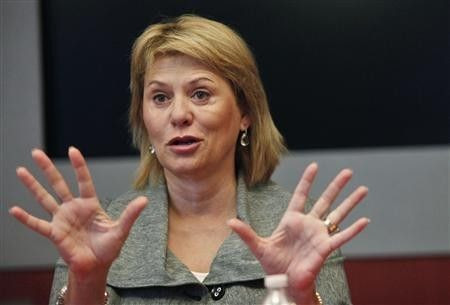Your Job May Depend on This: The 5 Major Speech Habits to Keep Check (Watch Video)
These Speech Habits Create an Impression About the Speaker

As much as body language is important in creating a good impression in the mind of the onlooker, it has been seen that voice and speech habits also influence a person's perception of you. These are extremely essential to know, especially if the job demands meeting other people on a regular basis or if you are going for an interview.
Do you have a creaky voice?
The creaky voice affectation also called vocal fry is when people lower their pitch in a manner that exerts pressure on their vocal cords making their voice creaky. A 2011 study published in the PLOS One journal revealed that employers were not very impressed with vocal fry, and they chose not to give the job to those with such creaky voices.Young women with vocal fry are especially more at a risk of losing the job. It was seen that 87 per cent of the time, a person with a normal voice is more likely to get a job than a creaky voiced person.
Uptalking
This is a term that was coined by James Gorman, journalism professor of New York University. He used the term to describe the habit that some of his students who end their sentences on an upswing, as if they are asking a question. Uptalking provides an impression of low confidence and self esteem. But a recent study by Thomas Linneman, a sociology professor at William & Mary, found that women who uptalked were more successful.
They analysed 100 episodes of Jeopardy and found that women who scored higher were uptalking, while for men it was the opposite.
So, do you begin your sentences with so?
Firstly a sentence beginning with "so" is not grammatically right, but since no one cares for grammar too much these days, you can still go on using it. . Galina Bolden, associate professor of communication at Rutgers University, told Business Insider that, "It communicates that the speaker is interested in or concerned about the recipient." It also is the mark of a new topic.
The "um" and "uh-huh"
Nicholas Christenfeld, in his 1995 paper "Does It Hurt To Say Um?" surveyed listeners and found that those who used these expressions were perceived as ill prepared and they also had negative impressions about the speaker. While studies suggest that the "uh" and "umms's" in a sentence are just pauses, it gives an impression of unpreparedness and slow train of thought.
The famous "like"
Remember never to overuse "like" in an interview as it suggests unprofessionalism. While some get annoyed with the word, linguistics say it is just used to fill gaps and to express themselves better.




















